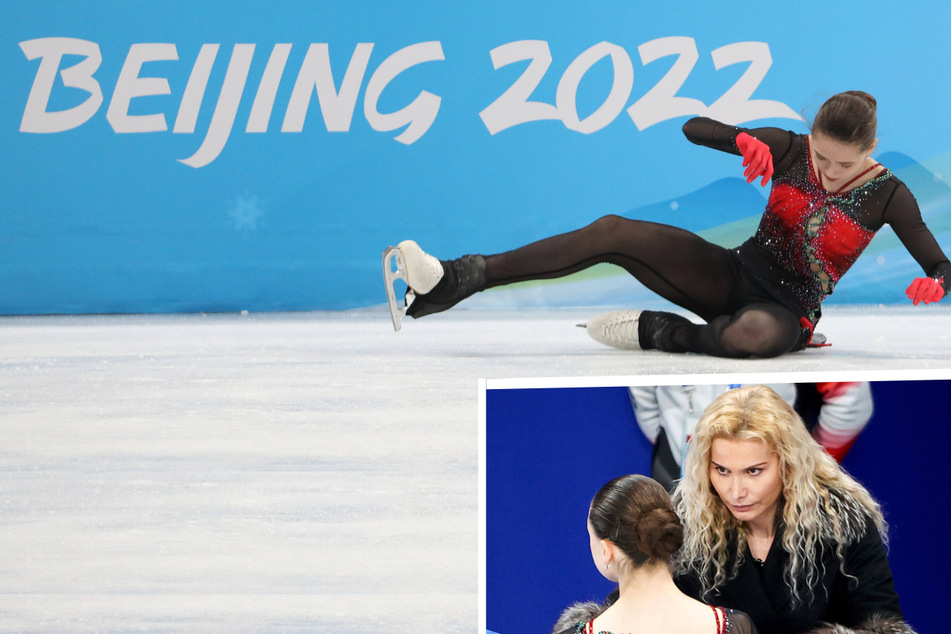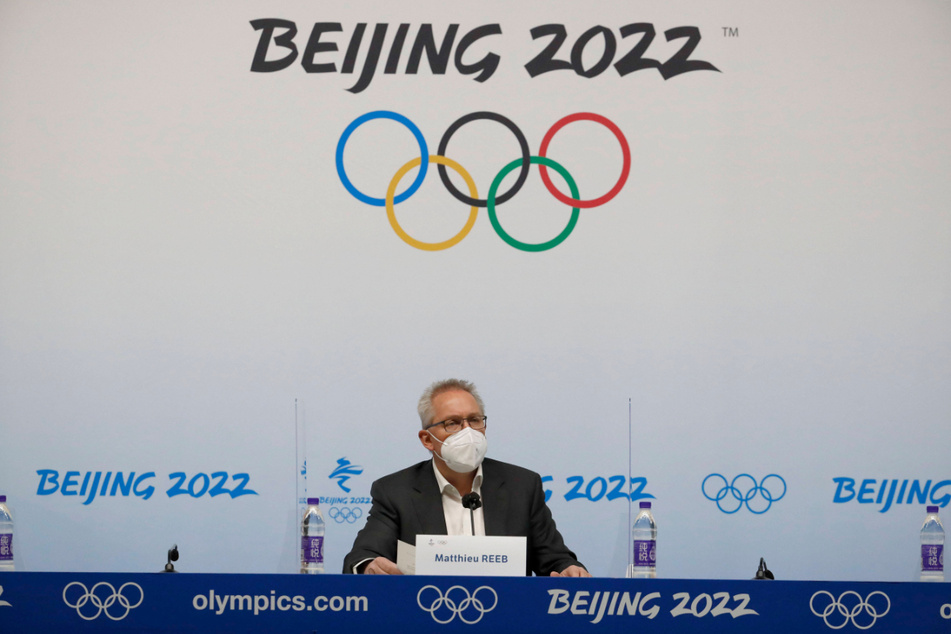"I hate skating": Skaters and officials trade fighting words over Olympic doping scandal
Beijing, China – The dialogue has run rampant over Russian figure skater Kamila Valieva's positive doping test, and her subsequent clearance to compete in the Beijing Olympics despite it, as both the organizations in charge and US and Russian officials trade fighting words – while skaters buckle under the pressure.

Everyone seems to be passing the buck on who exactly is to blame for the cloud that has overtaken women's figure skating at the Olympic Games, which ended its event on Thursday.
15-year-old Valieva tested positive for three heart medicines, one of which – trimetazidine – was banned, in a sample taken on December 25. The positive test result arrived 44 days later, on February 8, after she had already helped skate her Russian team to Olympic gold in the team event in Beijing.
On Friday, International Olympic Committee (IOC) president Thomas Bach condemned the "tremendous coldness" shown to Valieva by her entourage and coach Eteri Tutberidze after falling to finish fourth at the Beijing Games, with most spectators outraged on her being allowed to participate.
"Rather than help her, give her comfort, you could feel this chilling atmosphere, this distance," he said, stating he was "very concerned" for Valieva's well-being.
He is not the first to make note of the uneasy air over all the top placing Russian women, all of whom are coached by Tutberidze, who has been accused of using abusive methods to carry out strict training for the minors. Photos of Russian gold medalist Anna Shcherbakova showed her puzzling stoic after her win on Thursday, while her silver medalist teammate Alexandra Trusova had a very revealing "emotional outburst" – as she called it – when the event ended.
"I hate skating. I hate it. I hate this sport," she shouted, according to The Guardian. "I will never go out on the ice again!"
Russian Deputy Prime Minister Dmitry Chernyshenko has rebuffed criticisms of his country's team.
"We are deeply disappointed to see an IOC President weave his own fictional narrative on the feelings of our athletes, and then present these publicly as the voice of the IOC," Chernyshenko told the insidethegames portal.
"Everyone recognizes the Olympics as the pinnacle of professional sport, and every single athlete bears the hopes and dreams of their entire nation for their success," he added. "That is a known pressure, and it is also what drives them forward, with a fighting spirit."
Spokespersons for the Kremlin and the White House also weighed in on the sports scandal, which has come on the heels of heighten military tensions between the nations.
Kremlin spokesperson Dmitri Peskov said Friday that they respect the opinion of Bach as the highest sports authority "but don't necessarily agree with it."
From the US, White House press secretary Jen Psaki tweeted: "This Olympics ice skating journey tonight has left me emotionally drained."
Most viewers would agree.
The organizations in charge are also going tit-for-tat

The organizations who made the decision on allowing Valieva to compete under the immense pressure and circumstances are clapping back at each other over the mishandling the situation.
The Court of Arbitration for Sport (CAS) – whose panel allowed her to compete regardless of her positive drug test – is saying it is the fault of the anti-doping authorities' "failure to function effectively" in delivering the test sample on time.
The World Anti-Doping Agency (WADA) recommends samples are processed within 20 days of being collected. The CAS decided that because Valieva's came back 44 days later – from alleged processing delays due to Covid-19 staffing issues at a lab in Stockholm – the athlete would have been caused "irreparable harm" if her participation from the Games was pulled.
The anti-doping org hit back in response, accusing the CAS of deciding "to ignore the clear and unambigious terms" of the World Anti-Doping Code, saying the decision to allow Valieva to compete "sets a dangerous precedent."
They also pinned blame on Russia's anti-doping agency (RUSADA) instead, saying Russia's agency actually failed to "communicate effectively with the laboratory" to ensure the timely analysis of samples.
The statements come following Friday's release of the full written judgement from the CAS' panel decision allowing Valieva to compete. It also revealed that subsequent samples collected from the skater on January 13 and February 7 came back negative.
Her ultimate culpability for testing positive for the prohibited substance has yet to be determined.
Cover photo: Collage: IMAGO/ZUMA Wire & ITAR-TASS